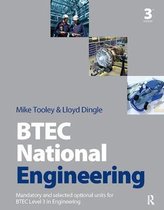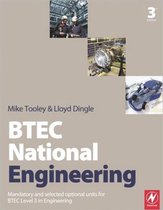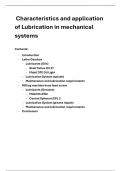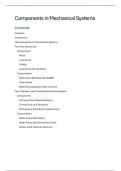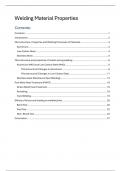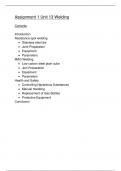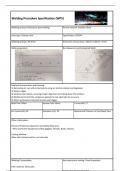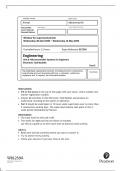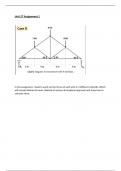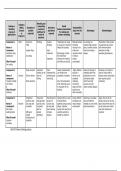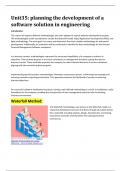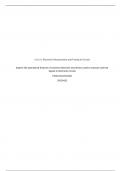Pearson BTEC • Engineering 2016/2017 NQF
Latest uploads for Engineering 2016/2017 NQF at Pearson BTEC. Looking for Engineering 2016/2017 NQF notes at Pearson BTEC? We have lots of notes, study guides and revision notes available for Engineering 2016/2017 NQF at Pearson BTEC.
-
123
- 0
-
17
Modules Engineering 2016/2017 NQF at Pearson BTEC
Notes available for the following courses of Engineering 2016/2017 NQF at Pearson BTEC
- Unit 1 - Engineering Principles
- Unit 2 - Delivery of Engineering Processes Safely as a Team
- Unit 3 - Engineering Product Design and Manufacture
- Unit 4 - Applied Commercial and Quality Principles in Engineering
- Unit 5 - A Specialist Engineering Project
- Unit 6 - Microcontroller Systems forEngineers
- Unit 7 - Calculus to Solve Engineering Problems
- Unit 8 - Further Engineering Mathematics
- Unit 9 - Work Experience in the Engineering Sector
- Unit 10 - Computer Aided Design in Engineering
- Unit 11 - Engineering Maintenance and Condition Monitoring Techniques
- Unit 12 - Pneumatic and Hydraulic Systems
- Unit 13 - Welding Technology
- Unit 14 - Electrical Installation of Hardware and Cables
- Unit 15 - Electrical Machines
- Unit 16 - Three Phase Electrical Systems
- Unit 17 - Power and Energy Electronics
- Unit 18 - Electrical Power Distribution andTransmission
- Unit 19 - Electronic Devices and Circuits
- Unit 20 - Analogue Electronic Circuits
- Unit 21 - Electronic Measurement and Testingof Circuits
- Unit 22 - Electronic Printed Circuit Board Design and Manufacture
- Unit 23 - Digital and Analogue Electronic Systems
- Unit 24 - Maintenance of Mechanical Systems
- Unit 25 - Mechanical Behaviour of Metallic Materials
- Unit 26 - Mechanical Behaviour of Nonmetallic Materials
- Unit 27 - Static Mechanical Principles in Practice
- Unit 28 - Dynamic Mechanical Principles in Practice
- Unit 29 - Principles and Applications of Fluid Mechanics
- Unit 30 - Mechanical Measurement and Inspection Technology
- Unit 31 - Thermodynamic Principles and Practice
- Unit 32 - Computer System Principles and Practice
- Unit 33 - Computer Systems Security
- Unit 34 - Computer Systems Support and Performance
- Unit 35 - Computer Programming
- Unit 36 - Programmable Logic Controllers
- Unit 37 - Computer Networks
- Unit 38 - Website Production to Control Devices
- Unit 39 - Modern Manufacturing Systems
- Unit 40 - Computer Aided Manufacturing and Planning
- Unit 41 - Manufacturing Secondary Machining Processes
- Unit 42 - Manufacturing Primary Forming Processes
- Unit 43 - Manufacturing Computer Numerical Control Machining Processes
- Unit 44 - Fabrication Manufacturing Processes
- Unit 45 - Additive Manufacturing Processes
- Unit 46 - Manufacturing Joining, Finishing and Assembly Processes
- Unit 47 - Composites Manufacture and Repair Processes
- Unit 48 - Aircraft Flight Principles and Practice
- Unit 49 - Aircraft Workshop Methods and Practice
- Unit 50 - Aircraft Gas Turbine Engines
- Unit 51 - Aircraft Propulsion Systems
- Unit 52 - Airframe Construction and Repair
- Unit 53 - Airframe Mechanical Systems
- Unit 54 - Aircraft Electrical and Instrument Systems
- Unit 55 - Aircraft First Line Maintenance Operations
- Unit 56 - Industrial Robotics
Popular books Pearson BTEC • Engineering 2016/2017 NQF
Latest content Pearson BTEC • Engineering 2016/2017 NQF
Distinction Grade for A1 U24
Distinction Grade for Assignment 2 Maintenance
Distinction grade assignment 2 welding for BTEC NATIONAL EXTENDED DIPLOMA IN ENGINEERING
Distinction graded assignment for assignment 1 welding tech.
Distinction grade work for Assignment 3 Welding Technology in BTEC LEVEL 3 Engineering
Distinction graded exam for microcontrollers exam
in jointed frames are commonly used in a wide range of applications, from simple roof trusses to complex bridge structures. Understanding how loads affect these frames is essential to ensuring their safety and reliability. In this report, we will demonstrate our analytical and practical skills in examining the effects of loads on pin jointed frames and suggesting improvements to their design. We will use a combination of theoretical analysis and physical experimentation to explore the behavior o...
UNIT 42 ASSIGNMENT 1 ENGINEERING DISTINCTION
this i a distinction graded essay its the first assigment of the Unit35: planning the development of a software sollution in engineering this will help you achieve a distinction grade hence use it as a guide
6 electronic devices testing and measurements and evaluations with conclusions. note; the 6 devices are analogue multimeter, digital multimeter, dual beam oscilloscope, power supply, logic probe and function generator

